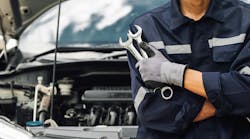My final article this year on business culture speaks to the bottom line of what really matters. As has been mentioned in each article in this series — “Culture conversations,” “Personal accountability,” and “Culture: The soul of your business” — the simple point that the cultures we establish and live in are based on patterns of learned assumptions. The less input we receive, the less likely our assumptions are the best, most productive approaches possible. The possibilities are limited because our perspective is limited.
We should do everything possible to create an environment that makes everyone around us feel comfortable in providing their thoughts, experiences and perspectives. This doesn’t mean we should accept and follow every suggestion we receive, but develop a pool of information from which we pull from. The larger the area and diversity of input, the greater feedback we have to develop our own thoughts and ultimately influences the culture we establish around us.
The ability and willingness to learn is the absolute key to success today. If we believe we have seen and experienced everything, we are wrong. A quote from American author Eric Hoffer says it all. “In times of change, learners inherit the earth; while the learned find themselves beautifully equipped to deal with a world that no longer exists.” In our industry, we are living in times of extreme change, and the ability and willingness to learn reigns supreme as the only resource of an ongoing competitive advantage. The longer we are in the industry, the easier it is for us to believe we have accumulated enough knowledge to become over confident and stop being open to learning. We spend more time sharing our past experiences and less on listening to new information.
As I travel and attend industry conferences and training sessions, I am always disappointed to see so few take advantage of the opportunity. The more we can expose ourselves to others in the industry, the bigger and clearer the picture gets for us and the decisions and evidential culture we influence is built upon a more informed pattern of learned assumptions. The principle that we learn more by being around others is not just a human trait, but a universal one. The following is an example. In the United Kingdom, at the beginning of the last century, milk was delivered to doorsteps in lidless glass bottles. The cream would rise to the top and seal off the fresh milk. However, because the cream was exposed and easily smelled and accessed, the robin and titmice species of birds begun to find the cream and eat it. The richness of the cream and the nutrients it provided caused a population explosion in both species. As the populations continued to grow, it got the attention of both researchers and milk producers. The result was a better understanding of why the population grew and the creation of aluminum lids being placed on the bottles. Once the lids were used, both bird species populations gradually went back to traditional levels.
However, within a few years the titmice population exploded again, while the robin populations stayed at traditional levels. This baffled researches until they realized that the very social nature of the two species accounted for the differences. The lid represented a higher level of complexity and required more learning to overcome. Robins are very territorial and though it was noted some robins had learned to overcome the lid challenge, they never taught the new knowledge and skills to others. As a species, they never learned to access the highly nutritious cream ever again. On the other hand, the titmice who spend most of their time in groups, learned from each other and the knowledge needed to peel back the lid to access the cream was taught to the entire species in the U.K. and they benefited from it.
There is an important lesson in this story. The more complex the challenge, the more advantage one has when others are engaged. My industry observations are consistent with this theme and I note that shop owners and managers who attend conferences and educational events, actively engaged in 20 groups or have coaches, are the most successful. It seems this same group actively educate their employees at a greater rate than those who stay to themselves and fail to seek feedback from others. Please keep in mind that just showing up is important, but the real value comes when one engages others and the meaningful conversations and relationships begin.
Repair businesses that have a culture that sets an expectation to learn and share knowledge, coupled with leadership and staff who are engaging others in the industry are without exception the most competitive businesses in the industry. The dynamics of this culture keeps the shop on the cutting edge of knowledge and constantly learning from each other and those outside their organization makes the difference. This is the culture created by a genuine curiosity and willingness to learn and will ultimately represent the successful businesses of the future. You can be the robin, be protective and stay to yourself, or be like the titmouse and engage and learn from others and reap the benefits. The decision is yours.

